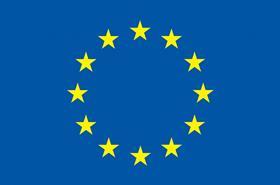
The Transatlantic Trade andInvestment Partnership (TTIP) between the EU and the US is an attempt by both parties to strip away red tape.
The Americans are looking for more freedom to trade in a range of industrial sectors, including agriculture. The NFU recently asked for assessments to be carried out in the areas of meat, eggs, and sugar to ascertain what impact TTIP would have on these sectors.
However, apart from Freshfel, the European fresh produce association, which has been involved with talks on apples and pears, it appears that the EU has not engaged in any talks with UK representatives for the fresh produce industry, although the Fresh Produce Consortium is aware of the negotiations and is monitoring news surrounding them.
Molly Scott Cato, Green MEP for the southwest, claims that emerging information gives UK farmers, especially small-scale operations, great cause for concern. She says that if successful, the agreement could result in the harmonisation of food standards between the EU and GM-friendly US.
“The potential race to the bottom on environmental standards, employment rights and animal welfare is one of the key concerns Greens have about these secretive trade negotiations.
TTIP is a huge threat to hard-fought- for European standards on the quality and safety of our food,” adds Cato. All parties concerned over the negotiations point to the element of the treaty called investor-state dispute settlement (ISDS). ISDS in effect grants multinationals the same legal position as a nation state itself, and allows them to sue sovereign governments in so-called arbitration tribunals on the grounds that their profits are threatened by government policies.
For an example of this, a report commissioned by the British government, for the Department for Business Innovation and Skills, and by the London School of Economics, made reference to the Canadian experience. Canada signed a similar deal with the US in 1994 called the North American Free Trade Agreement (NAFTA).
The report states: “The Canadian government has had to invest considerable resources in an investment-treaty defence capacity as a result of its more than 30 NAFTA claims. While few of these cases were lost on the merits, Canada has faced incentives to settle cases either by paying compensation or, in some reported cases, by changing government policies.
“We would expect the UK to have an approximately similar experience under an EU-US investment chapter, though the larger stock of US investment in Britain could imply that the UK may be subject to an even greater number of disputes – and thus potential costs – than Canada.”
The report concludes the UK would not benefit economically by signing up. The Soil Association is also sounding warning bells. Peter Melchett, Soil Association policy director, says that there is already an agreement between the EU and the US to treat organic products certified in the US or the EU as
equivalent, so that they can be freely traded. “However, this EU/US deal on organic food was agreed without any consultation with the organic movement, and the full details are still not clear – a clear warning that in this area the ideological commitment to free trade overrules all other considerations,” he said.
“US and EU citizens would benefit from the new trade deal adopting the highest safety, animal welfare and environmental standards. The problem is that the big players in the food and agricultural industry are using this deal to attack safety standards, and Europe’s use of the precautionary principle.”
Despite the many concerns, the EU is adamant that farmers and producers need not worry. “The EU side has always been entirely clear on the limits: in particular that there will be no compromise on EU food safety,” said a spokesman for the commission.
“There has been some preliminary discussion on pesticides, to define areas for further work. Again, the aim is to eliminate unnecessary red tape. The EU market will not be opened to anything not in line with rigorous EU safety precautions.
“This said, no decisions or agreements have been reached on either of the above areas or any others. As in every trade deal, nothing is agreed until everything is agreed.”
Adrian Barlow, CEO of English Apples & Pears, is also positive that there will not be any lowering of EU standards to accommodate American producers.
Instead, Barlow says, this could ultimately open up the American market to European producers, and provide a life- line for those hit by the Russian ban.



